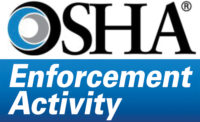OSHA: Fatal grain engulfment could have been prevented if they had adequate rescue equipment

A Hamilton, Missouri grain cooperative could have prevented an employee’s fatal engulfment in a storage bin in May 2024 had it followed federal workplace safety requirements, OSHA reports.
Responding to the employer’s report of a worker fatality, investigators with OSHA learned that three employees of MFA Inc., operating as MFA Rail Car, were removing corn screenings – comprised of clumps of corn dust – from a bin at the company’s Hamilton facility. One worker entered the bin to clear screenings and became engulfed when the screenings shifted. Another worker tried to rescue his co-worker but was engulfed to his waist before being rescued by first responders from the local fire department.
OSHA found the Columbia grain cooperative had not completed a required bin entry permit before allowing the worker inside. Additionally, the conveyor was running with the bin’s bottom gate open, increasing the risk of product shifting and the risk of engulfment. The employer also lacked adequate rescue equipment, failed to ensure the worker wore a harness and lifeline and did not follow other required safety procedures before entering the bin.
“By neglecting basic safety standards, MFA Rail Car put their workers at serious risk,” said OSHA Area Director Karena Lorek in Kansas City, Missouri. “Through its outreach and alliance efforts, OSHA works closely with industry partners to educate employers and workers about the critical importance of grain bin safety and reminds all employers to never become complacent in this highly hazardous industry.”
Following its inspection, OSHA cited MFA Inc. for one willful violation and five serious violations and proposed penalties of $241,887. Specifically, the agency identified the following safety failures:
- Lacking adequate rescue equipment on site when workers entered bins.
- Failing to protect employees from falls on walking working surfaces.
- Not verifying that mechanical, electrical, hydraulic and pneumatic equipment inside grain storage structures were deenergized, locked out and tagged to prevent operation when workers entered.
- Allowing workers to enter a bin without completing the permit process.
- Not testing the bin’s atmosphere before workers entered.
- Not providing a harness and lifeline positioned to prevent the employee from sinking deeper than waist-deep in the grain.
Looking for a reprint of this article?
From high-res PDFs to custom plaques, order your copy today!






